Ian Oxford paints a souvenir on every Kindred house swap
Imagine returning home after a trip to find a custom illustration of your living room. Meet the man who paints every home he visits.

It’s customary for Kindred members to write their hosts a thank you note and leave a small token of appreciation — a bag of coffee beans, a candle, a few flowers. Ian Oxford from Bath, England, leaves behind a custom painting of the host’s house.
In the COVID-19 lockdown, bored and stir crazy, Ian started looking around his double-fronted limestone home, where he and his wife have lived for 32 years. He began illustrating the objects he saw with intricate ink and watercolor. When the lockdown lifted, he started traveling, sketching, and painting new places.
When Ian and his wife stay at a Kindred home, he takes time to observe and absorb the personal touches of the homeowners: the books on the shelves, the artwork on the walls, the little details that make the space uniquely theirs. Then, he draws.
At the end of his stay, Ian gives these illustrations, of a room or an object or a view from a window, to the members who hosted him. It’s a gesture of appreciation for the warmth and hospitality of the homeowners who have opened their doors to him. Illustrating has become a deeply personal way for him to connect with the spaces and people he encounters on his travels.
Q: How did you get into illustration?
A: It started during lockdown because we were all in our houses, weren’t we, and I didn’t have the most interesting job. While working from home, you’d be looking around and think — that’s interesting. So I started off just drawing objects in my house. It became almost obsessive, really. I was drawing loads of things — chairs and ornaments and clocks — and then moving on to whole rooms, and then outside things while on walks with my dog. I drew the mantlepiece at Christmas. All of our shoes! After a while I was getting desperate for things to draw and turned to my glasses, my wife’s handbag, mugs, and coffee.
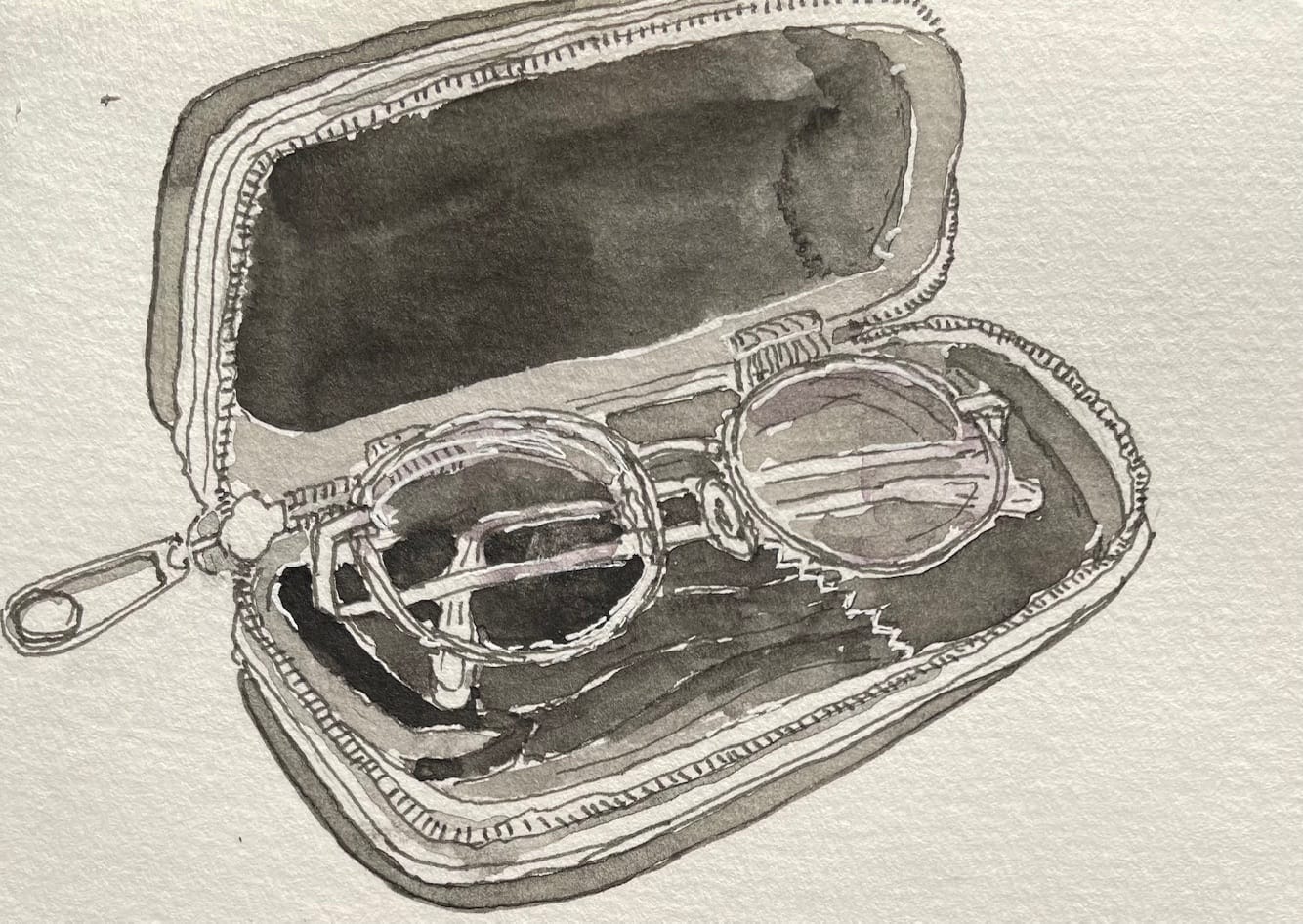
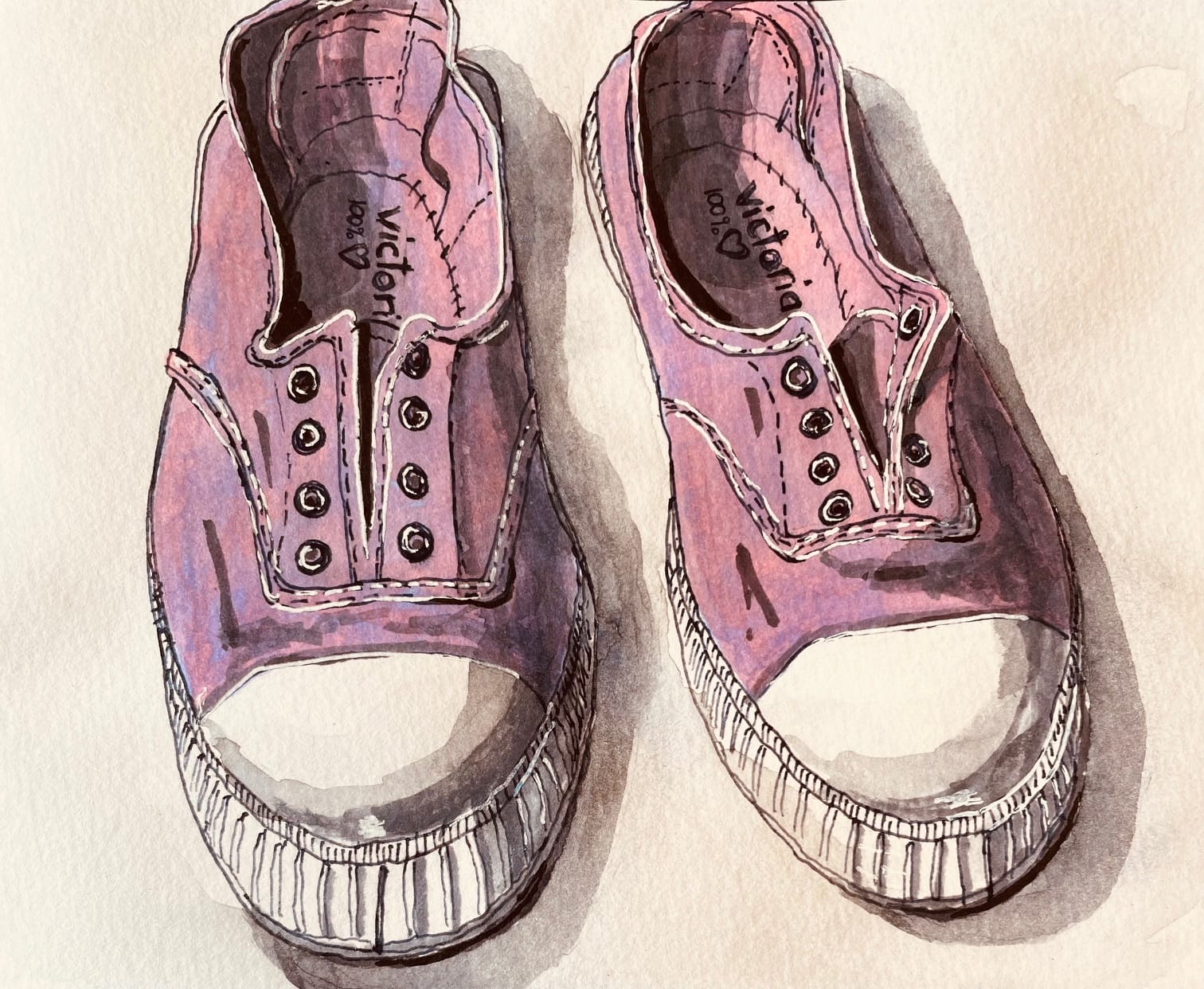
Q: I love that you’re drawing these little details — things that we pass by every day that really are the essence of a home. You’re assigning them value by drawing them.
A: Yes, and, also, it’s the slowing down. We’re all conscious of mental health right now, aren’t we? The phone is such a terrible distraction. It’s the thief of time, isn’t it? It takes your time. When I’m drawing a picture, I can’t not concentrate. You have to really think. So, it’s more engaging in that sense, and I enjoy that.
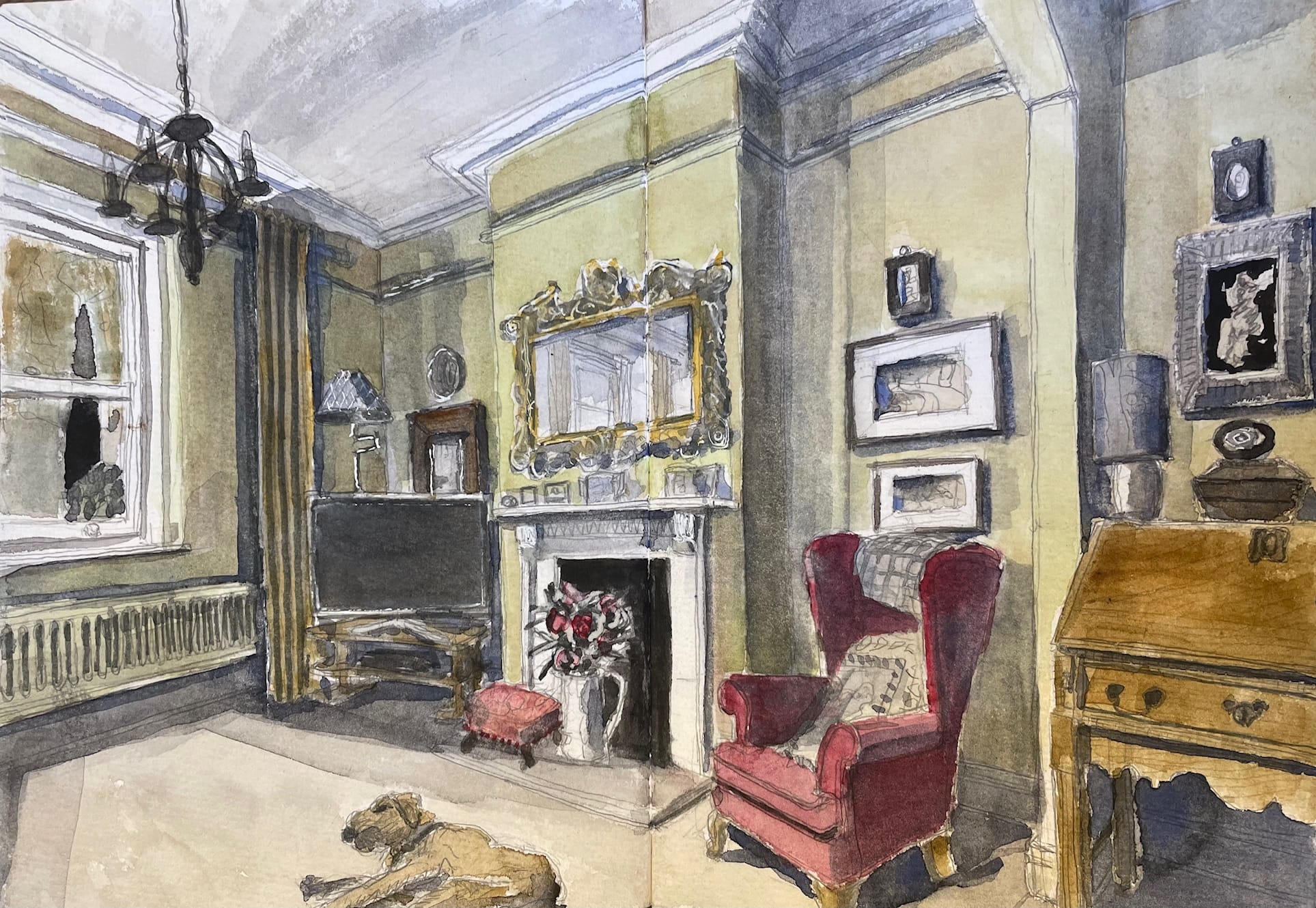
Q: After these first explorations of your home, you started illustrating other places as well.
A: I realized you could go on to Google Earth and pick any picture on there. So, I started drawing the road that I live on, and other areas in Bath. When we went on holiday, I drew our hotel.

And then, when we started traveling with Kindred, it was great because I was going into somebody else’s home. It’s always very exciting because there are new things to draw, and there’s a new view out the window.
Q: When you go to a Kindred home, how do you pick what to draw?
A: I’m looking for the architectural detail. Also, if you can have different perspectives — something in the foreground, something in the medium ground, something in the far ground — that gives interest. I look for items and spaces that have character, I would say, because they’re more interesting to draw.
We went to stay in an Amsterdam townhouse that had wooden beams like in the inside of a ship. It was so difficult to draw because everything was angled, but I enjoyed doing that. They had a window with a nice brick view and a Christmas tree with a reproduction Picasso painting, so I got those in as well. The hosts were very appreciative that I left the art for them. They said they were going to get it framed.
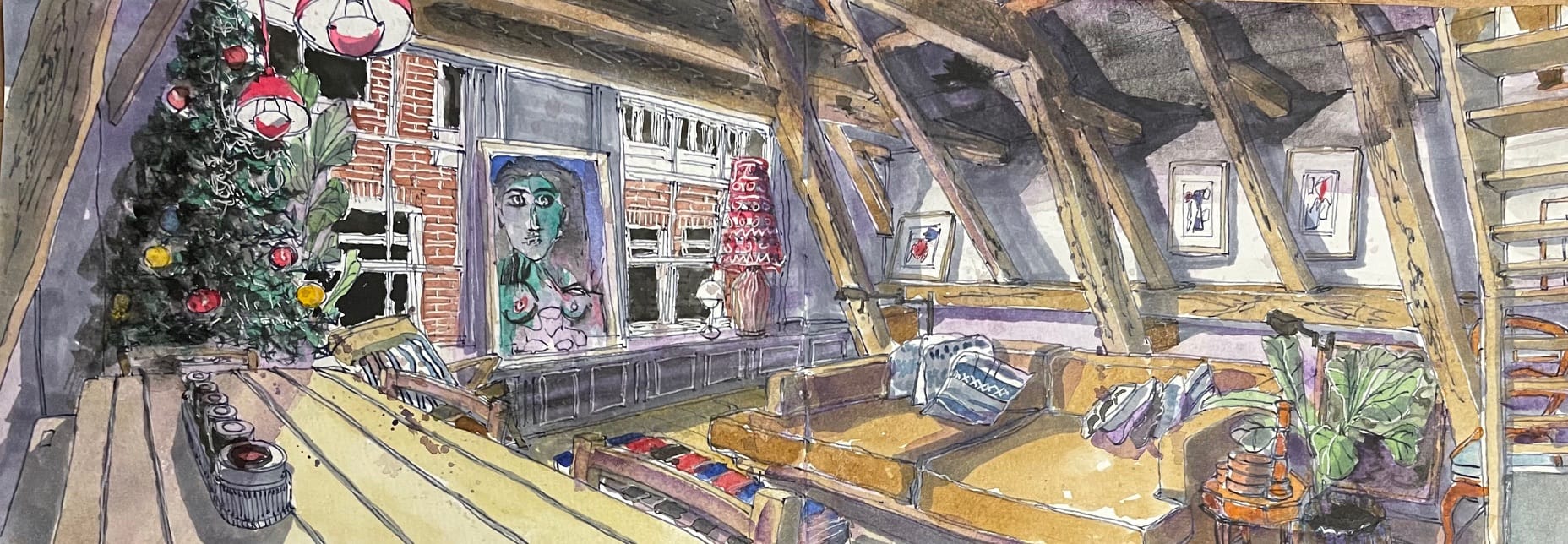
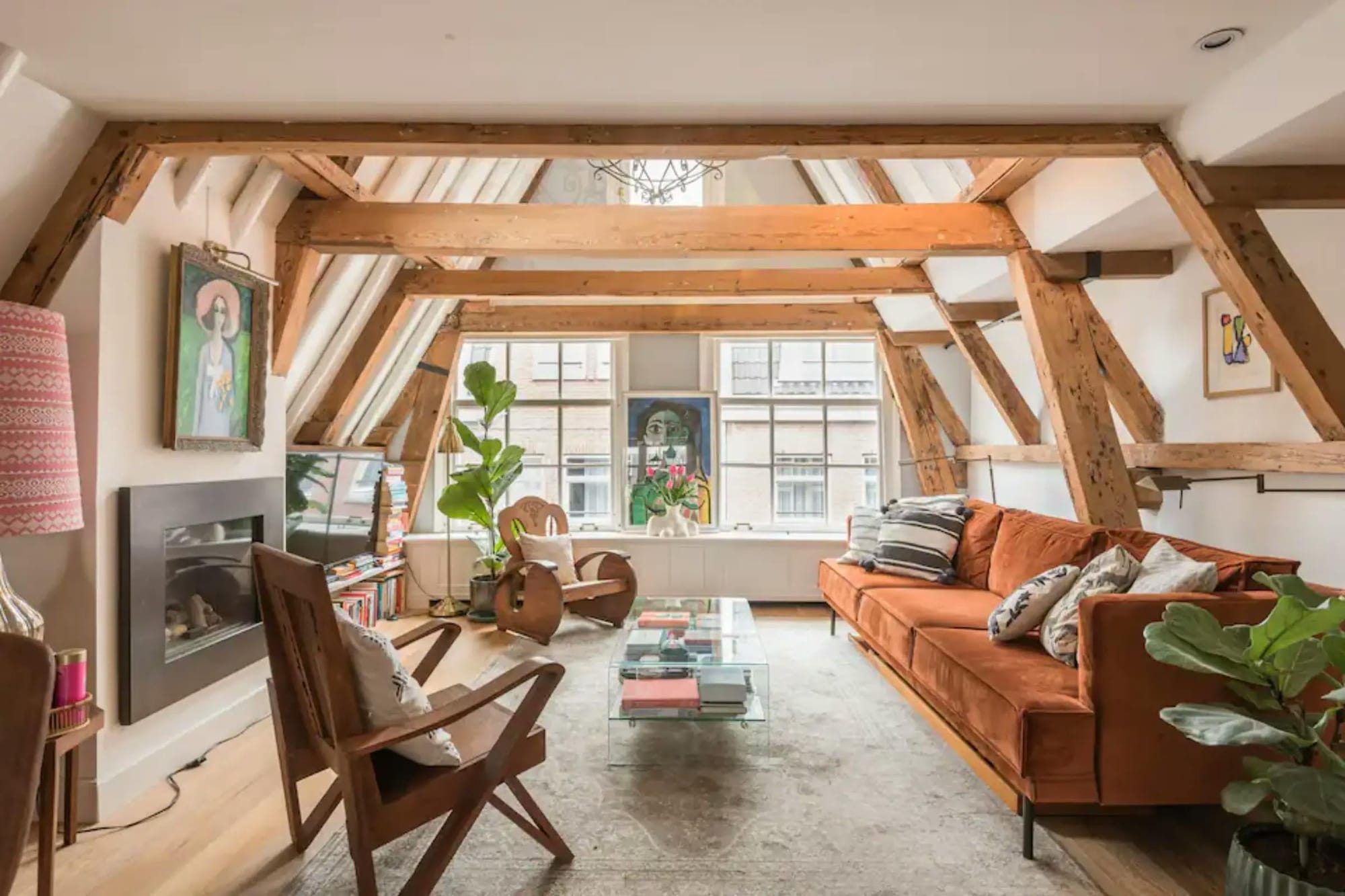
Q: I would frame that, too! What have you learned about people through their homes, through observing their objects and their space?
A: When you go to a Kindred house, it’s always fascinating, isn’t it? You think: Who lives here? And then you study all their books, don’t you? I try to imagine who they are and what they’re like. I think you do get to know people’s personalities. If you’re drawing the room, it’s the sum of everything, all the decisions that they’ve made. I remember things better because I was spending time drawing them, too — it’s a more thorough way of observing things.
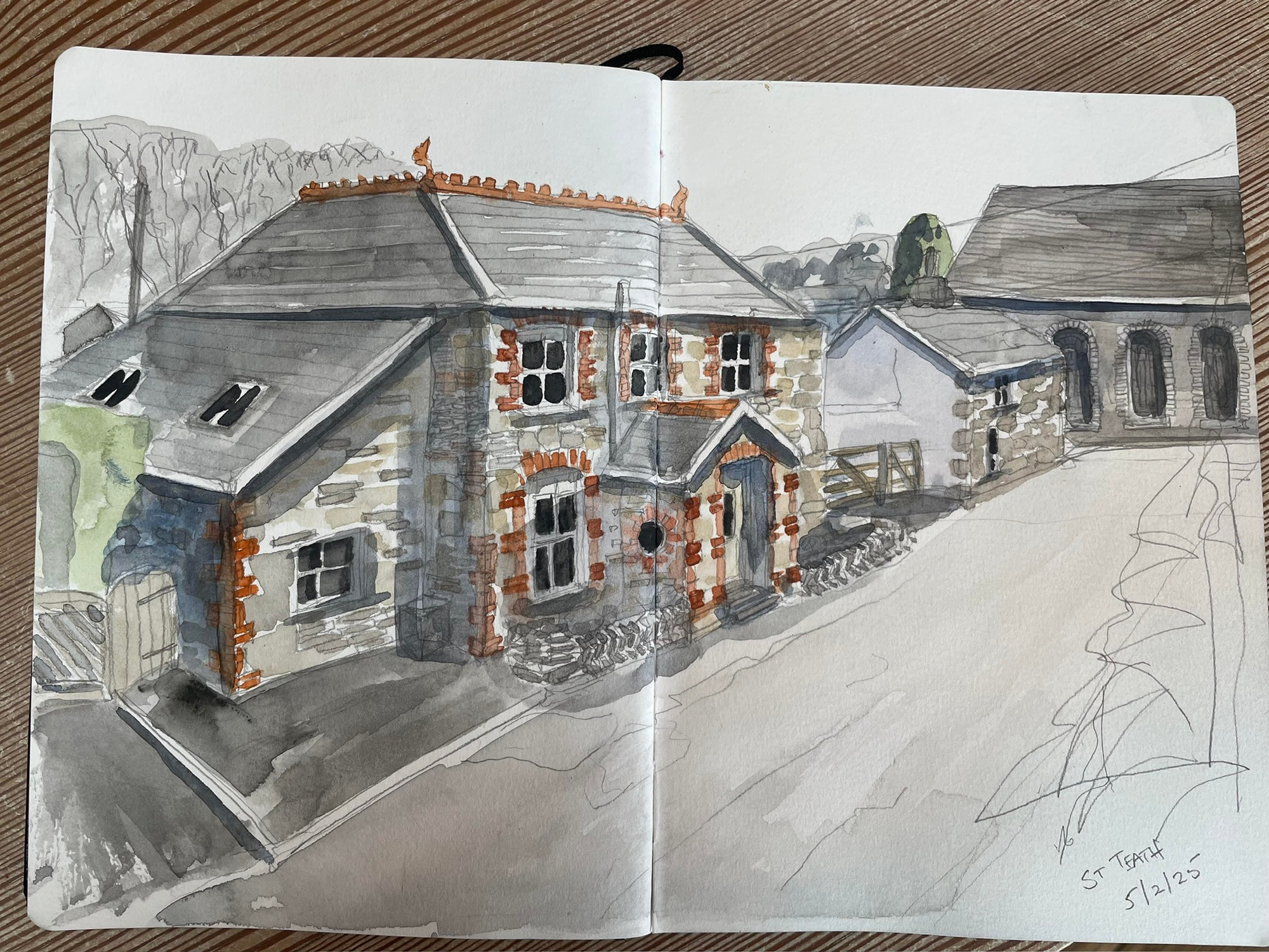
Q: It’s a beautiful thought, to go into someone’s home to observe the culmination of all the things they’ve collected. You see who they are through their home, and understand it through your drawings.
A: Yes, and when you go to somebody’s house, you generally compliment the owner. “Haven’t you decorated this nicely? It’s a lovely room.” When you’re staying in a Kindred property, you don’t have that in-person interaction since they’re not home, so leaving art behind is like a little postcard to them.
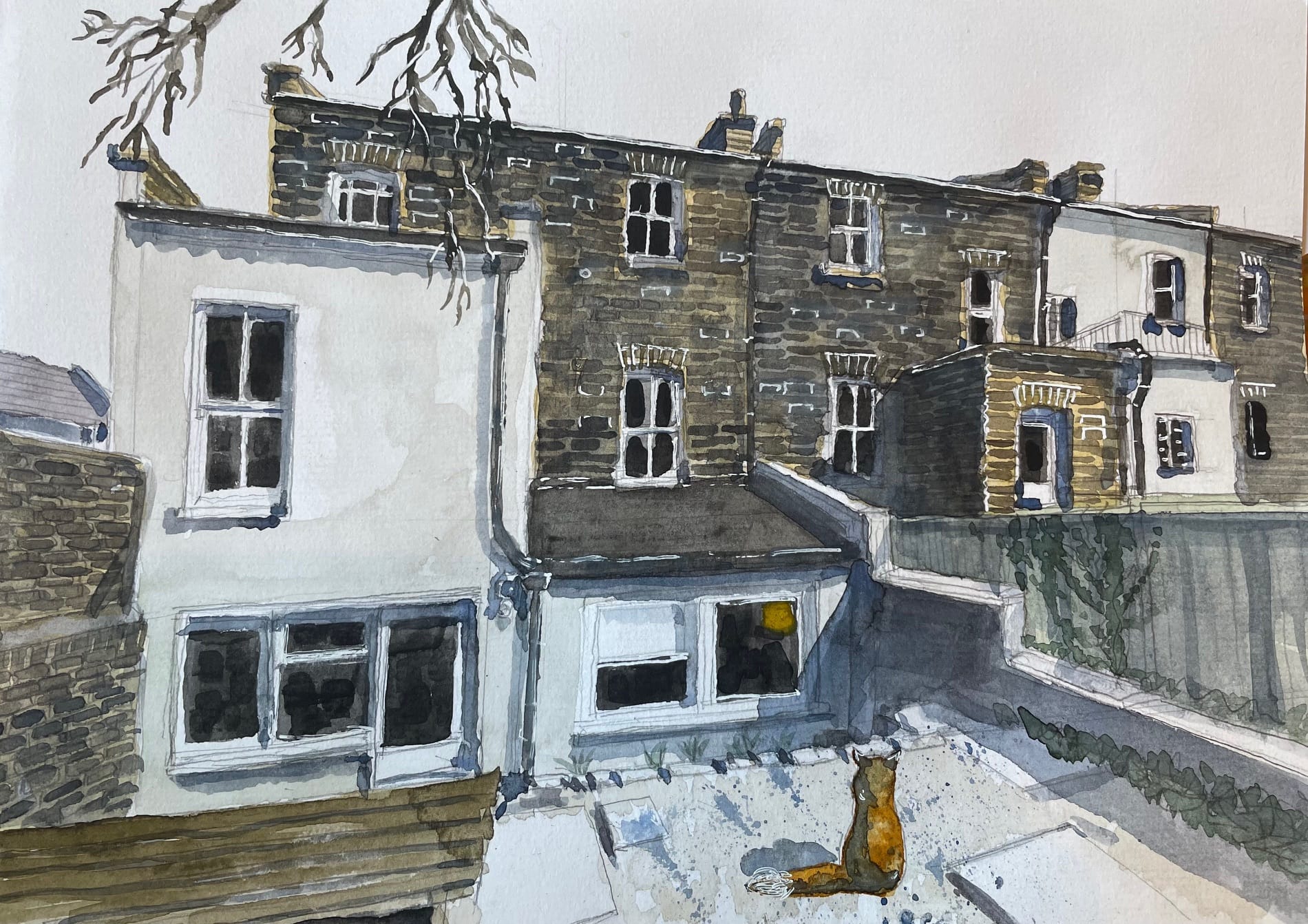
Q: I would be interested in seeing how someone else views my home, my space, because I see it every day.
A: Yes, and everybody would see something different, wouldn’t they? So it’s nice to draw what you see and then leave it for them. It’s almost like, I’m not taking your personal choices that you’ve made away from you — I’m giving them to you. When you go to a hotel or perhaps to a vacation rental that has more of a commercial setup, there isn’t that personal connection. But with Kindred, you do get the sense that it’s somebody’s home, and you’ve got to look after it. You’ve got to look at it.
Now that you've seen a glimpse of how special the Kindred community can be, you may still have some questions about the basics of house swapping. Here’s a short FAQ, for starters.
Q: How does Kindred work?
Kindred is a vetted members-only house swapping platform that makes it easy to exchange homes with other members around the world. You stay in someone’s house while they’re away, and they do the same in yours (not necessarily at the same time!). Beyond 1-for-1 swaps, Kindred runs on a credit system. You can earn credits when you host, then use those credits to stay in other members' homes.
Q: Do I have to pay to join Kindred?
Nope! Joining Kindred is 100% free. If you’re accepted, you’ll only pay a service fee and cleaning fee when you book a stay. There are no hidden charges or subscription fees (unless you opt into the Kindred Passport, a yearly membership for frequent swappers).
Q: Is Kindred cheaper than a hotel or short-term rental?
Yes, it's much more affordable, especially for trips lasting a week or longer.
On other platforms, you’re paying for a nightly rental fee, service fee, and cleaning, and that adds up fast. With Kindred, you use credits instead of paying per night. All you pay is a cleaning fee (based on the home’s size and location) and a small service fee, which varies by stay and is shown before you book.
This makes Kindred one of the best options for affordable travel and finding cheap places to stay in cities like London, New York, Paris, and more.
Q: Is Kindred safe?
Yes. All members go through a screening and identity verification process before being accepted. Everyone hosts their own home, and you’ll always know who you’re swapping with. The Kindred team also provides 24/7 trip support, cleaning coordination, and host protection during every stay.
You’re never auto-matched or forced into accepting a stay. You can chat with guests (including a video call) and only confirm a stay when it feels right on both sides.
Q: Can I house swap on Kindred if I rent, not own?
Yes! Lots of Kindred members are renters. You just need to check with your landlord or lease agreement. You don’t need to own a fancy house to join. Kindred homes are about warmth, trust, and personality, not square footage or interior design.

